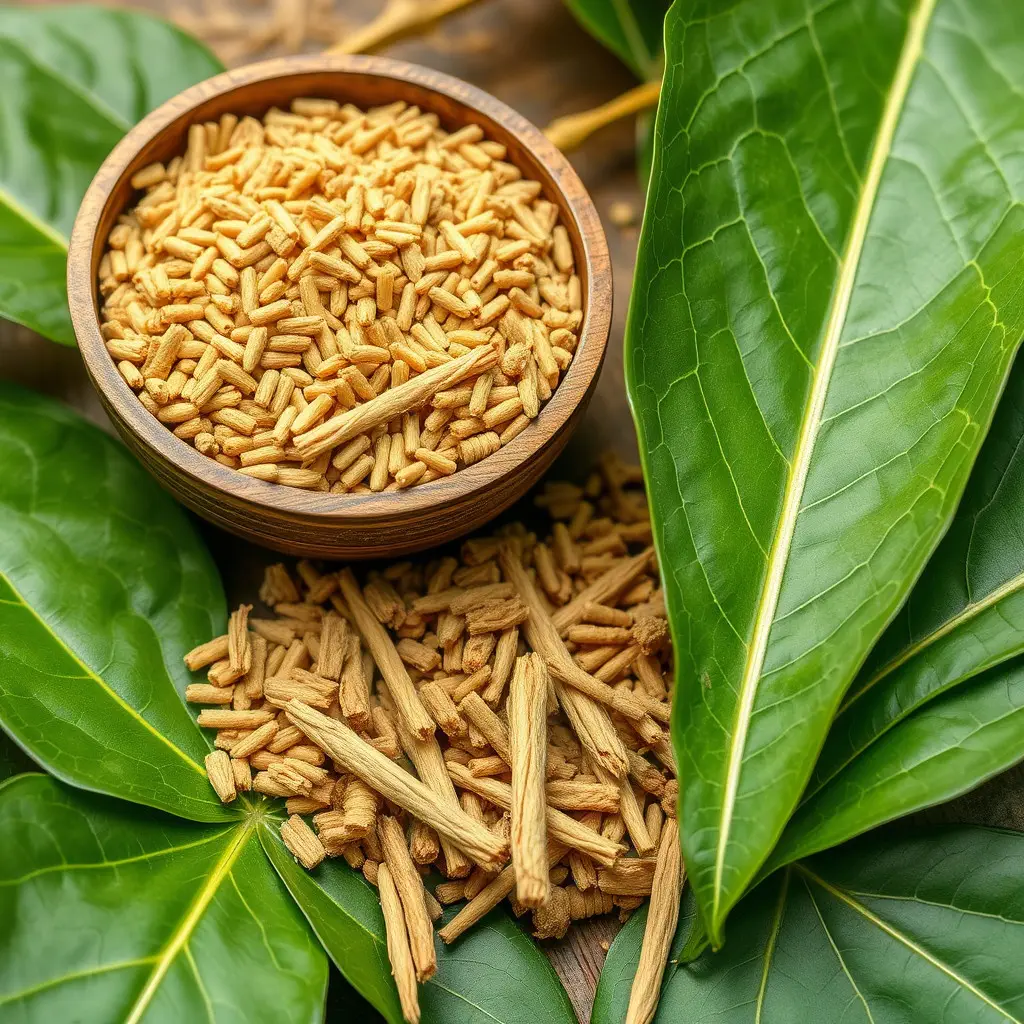Kratom, a plant from Southeast Asia with complex alkaloids, has been investigated for its potential impact on hair health. While it interacts with opioid receptors, research is exploring whether certain kratom alkaloids, such as mitragynine and 7-hydroxymitragynine, might influence hair growth by affecting signaling pathways involved in hair follicle development and the hair cycle. Anecdotal reports suggest kratom could support healthy hair through improved circulation and stress reduction, potentially aiding conditions like alopecia areata. However, the scientific community is cautious due to the complex relationship and the need for more research. Current evidence does not strongly indicate that kratom causes hair loss, including androgenetic alopecia, but the role of kratom in hair health remains an open question. Ongoing studies are necessary to clarify how different strains and concentrations of kratom may affect hair growth or loss, emphasizing the importance of scientific investigation over anecdotal evidence to understand kratom's effects on hair maintenance.
Exploring the intricate relationship between herbal supplements and hair health, this article delves into the impact of Vietnam Kratom Leaves. A natural source of alkaloids, Kratom has garnered attention for its potential effects on hair growth, challenging common misconceptions about it causing hair loss. We will dissect the science behind these claims, examine the role of Kratom’s active compounds in promoting healthy hair, and clarify whether concerns regarding hair loss are substantiated or debunked by scientific research. Join us as we uncover the truth about Vietnam Kratom Leaves and their effects on your mane.
- Unraveling the Effects of Vietnam Kratom Leaves on Hair Health: A Closer Look
- Exploring the Interplay Between Vietnam Kratom and Hair Loss: Myths vs. Science
- The Role of Vietnam Kratom Alkaloids in Hair Growth and Health Maintenance
Unraveling the Effects of Vietnam Kratom Leaves on Hair Health: A Closer Look

Kratom, a tropical evergreen tree native to Southeast Asia, has garnered attention for its diverse alkaloid profile and the myriad effects it may produce in users. Among the various discussions surrounding kratom, its potential impact on hair health has emerged as a topic of interest. The leaves of the kratom plant contain compounds such as mitragynine and 7-hydroxymitragynine, which have been studied for their interactions with the body’s opioid receptors. While the scientific community continues to explore the full scope of kratom’s effects, there is a growing curiosity about whether Vietnam Kratom Leaves can influence hair health.
Preliminary research suggests that some of the active constituents found in kratom may have an effect on hair growth. For instance, certain alkaloids have been observed to modulate signaling pathways associated with hair follicle development and the hair growth cycle. However, it is crucial to approach such findings with caution. The relationship between kratom use and hair health is complex and multifactorial. While some anecdotal reports claim that kratom may support healthy hair by promoting blood circulation to the scalp or reducing stress—a known factor for hair loss conditions like alopecia areata—the scientific evidence is still emerging. It’s important for individuals considering kratom as a potential treatment for hair loss to consult with healthcare professionals. The long-term effects of kratom on hair health remain an area that requires more rigorous research to fully understand the mechanisms at play and to determine whether it could be beneficial or potentially harmful, especially given the varying strains and concentrations of kratom available. Does kratom cause hair loss? This question is currently unresolved and warrants further investigation to clarify its role in hair health maintenance.
Exploring the Interplay Between Vietnam Kratom and Hair Loss: Myths vs. Science

The relationship between Kratom, a plant-based substance derived from the leaves of Mitragyna speciosa native to Southeast Asia, and its potential impact on hair health has been a topic of both scientific inquiry and popular belief. Vietnam Kratom, specifically, has garnered attention within this discourse. While some argue that Kratom use can lead to hair loss, often citing anecdotal evidence or cultural myths, the scientific community approaches this claim with caution, emphasizing the need for empirical evidence. The active alkaloids present in Kratom, such as mitragynine and 7-hydroxymitragynine, have been studied for their effects on the body, but their role in hair loss remains a subject of investigation. It is important to differentiate between various types of hair loss and understand that direct causation has not been established between Kratom use and androgenetic alopecia, which is the most common form of hair loss in humans. While there are numerous factors that contribute to hair loss, including genetics, hormonal changes, and nutritional deficiencies, the current scientific consensus does not point to Kratom as a primary cause for concern in this regard. However, any substance with significant biological activity, like Kratom, can potentially have unforeseen effects on the body, which is why ongoing research and clinical studies are crucial to fully understand its implications for hair health. Users considering Kratom should be aware of these considerations and consult healthcare professionals before use, particularly if they have a history of hair loss or other related concerns.
The Role of Vietnam Kratom Alkaloids in Hair Growth and Health Maintenance

Kratom leaves, originating from Vietnam, contain a complex blend of alkaloids that have garnered attention for their potential impact on hair growth and overall health maintenance. Mitragynine and 7-hydroxymitragynine are among the most prominent of these alkaloids, known for their various effects on the body. Research suggests that these compounds may influence hair health through multiple pathways. They potentially stimulate follicle activity, promoting anagen phase hair growth, which is the active growth phase. Additionally, kratom’s anti-inflammatory and antioxidant properties might contribute to a healthier scalp environment, reducing the risk of hair loss associated with inflammatory conditions like alopecia areata or androgenetic alopecia. However, it’s crucial to approach the use of kratom with caution, as the scientific community continues to explore its effects. Concerns regarding kratom’s interaction with hair follicle dynamics are still under investigation, and it’s important to differentiate between anecdotal evidence and empirical data when considering whether kratom causes hair loss or can be a beneficial agent for hair health. Users interested in the potential benefits of Vietnam kratom alkaloids for hair growth should consult healthcare professionals to weigh the risks and benefits, especially given the lack of definitive research on this topic.
In conclusion, the examination of Vietnam Kratom Leaves’ impact on hair health presents a nuanced understanding that both demystifies and clarifies previous misconceptions surrounding their effects. It is evident from the scientific analysis that the relationship between Vietnam Kratom and hair loss is complex; while does kratom cause hair loss is a question that requires careful consideration, the evidence suggests that moderate consumption may not inherently lead to hair thinning or baldness. Instead, the alkaloids present in these leaves have shown potential for supporting hair growth and maintaining overall hair health. This research serves as a testament to the therapeutic properties of Vietnam Kratom when used responsibly, offering a promising avenue for natural interventions in hair care regimens.






